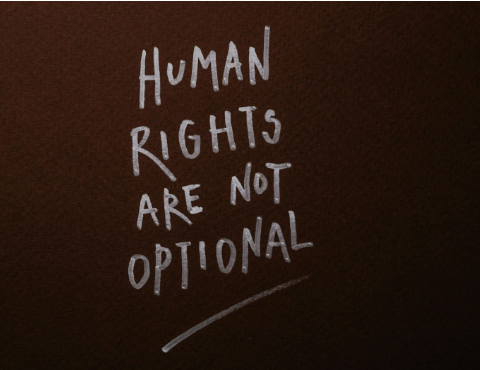By: Tia Ayele
Prime Minister Meles Zenawi’s twenty year reign over Ethiopia came to an abrupt end in August when he unexpectedly passed away due to unspecified illnesses. Prime Minister Zenawi died at the age of 57, leaving behind a long legacy of food security and rapid economic development. His contributions to the nation have not gone unnoticed by the Ethiopian people, and the loss of the nation’s visionary is felt far and wide. In the capital city of Addis Ababa alone, pictures of Zenawi can be found everywhere; his face appears on the windows of local coffee shops and is plastered on every major street corner.
Although the nation has been mourning his death, reflections on the prime minister’s legacy are far from purely nostalgic. Along with the Prime Minister’s success in developing Ethiopia’s economy comes a darker history filled with government corruption and human rights violations.
Many critics of the Prime Minister claim that his economic reforms were made at the steep cost of democracy. The government claims to be a Federal Republic, but Zenawi’s regime was notable for widespread human rights violations. Civil liberties were practically non-existent at times, and there have been grueling restrictions on civil society, especially on freedom of speech, association, and assembly. Two human rights groups, Amnesty International and Human Rights Watch, have publicly condemned the Ethiopian government for suppressing these civil liberties. According to Human Rights Watch, the Prime Minister’s party even had “total control of local and district administrations to monitor and intimidate individuals at a household level.” This tight grip on freedom yielded a culture of fear in Ethiopia. Most would not dare take the risk of serving lengthy prison sentences by speaking out against the government.
Zenawi’s tyrannical behavior during the 2005 election perhaps best illustrates the Prime Minister’s iron fist.
What was promised to be a fair election came under heavy criticism, and when accusations of electoral fraud first surfaced, the Prime Minister nervously declared a state of emergency in which he outlawed public gatherings and drew special forces from elite military units to intimidate civilians. When the official results of the election claimed victory for the Prime Minister, ensuing demonstrations were quickly and violently dismantled. Nearly 200 people, many of them college students, were killed as a result of the government crackdown.
Despite Zenawi’s reputation of forcibly silencing dissent, his positive contributions to Ethiopia must not be overlooked. Zenawi’s personal commitment to developing Ethiopia–a nation on which the international community had once given up–was the primary force behind Ethiopia’s economic boom. One of the biggest developments that Zenawi instituted was the Ethiopian Commodity Exchange (ECX), a multi-commodity exchange program intended to achieve market efficiency in the agricultural sector. Created almost four years ago, the ECX has quickly become the most sophisticated commodity exchange in all of Africa. Since its implementation, Ethiopia’s agricultural system has experienced unparalleled success. Overall agricultural output has dramatically increased and several new promising sectors, such as floriculture, have arisen as a result.
Prime Minister Zenawi is also responsible for Ethiopia’s infrastructural transformation over the past decade. In two decades, the percentage of Ethiopia covered by roads has doubled. The growing construction sector has experienced 10 percent annual growth and has created a multitude of jobs and business opportunities in the nation. Moreover, Zenawi’s emphasis on developing infrastructure has increased Ethiopia’s overall standard of living. Affordable housing for low and middle income Ethiopians is increasingly available, and the number of government health centers has also grown. There will be 3,153 government health centers by the end of 2012 compared to the mere 630 that were available just three years ago. Because Ethiopia has only experienced this type of sustained economic growth under the leadership of Zenawi, many Ethiopians are fearful of a future without his rule.
Ethiopia is not the only nation concerned about the loss of the Prime Minister; the rest of the international community, primarily the U.S., share similar sentiments. Prime Minister Zenawi was a key ally in the War on Terrorism and a valuable partner to the United States. Under Zenawi’s administration, Ethiopian troops worked with U.S. militia to combat prevalent Islamic militant groups in the Horn of Africa. These terrorist networks, the largest being Al-Shabaab, continue to pose a serious threat to United States national security.
Prime Minister Meles Zenawi’s death translates to a myriad of uncertainties both for Ethiopia and the international community. His legacy, mixed with reflections on both rapid economic growth and a notoriety for corruption, is similarly ambiguous. However, Zenawi’s death might signify a newfound opportunity for Ethiopia, a chance to experience an era of leadership defined by true democratic ideals, one that can finally exercise its civil liberties, one devoid of corruption. Conversely, the absence of Prime Minister Zenawi may challenge the trend of economic growth in Ethiopia. Depending on the policies of the next administration and the newly inaugurated Prime Minister Hailemariam Desalegn, it is uncertain whether the economy will continue to grow at the same rate, if at all.

